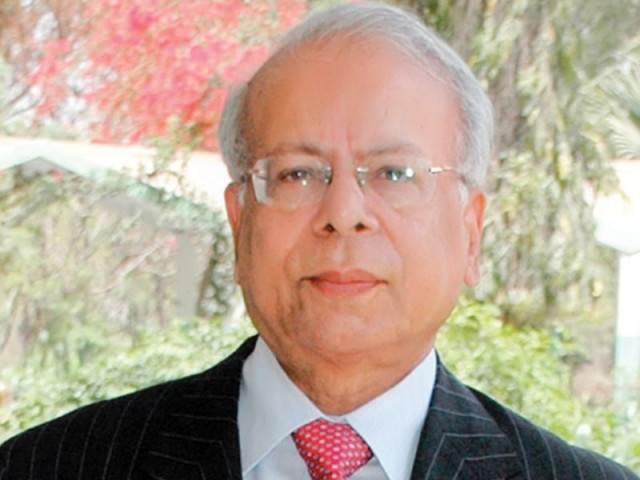Economic liberalism: IBA dean delivers strong defence of privatisation
Husain spoke at a forum organised by KESC on the 99th anniversary of its existence.

It was a fitting tribute to a privatisation success story: on the 99th anniversary of its existence, the Karachi Electric Supply Company hosted a “Thought Leadership Forum” where the former State Bank governor Ishrat Husain delivered a clear, concise defence of privatisation as a means to sustainable economic growth.
At a gathering of corporate CEOs and bankers at the DHA Golf Club in Karachi, Husain spoke in his usual mild-mannered tone, listing each criticism of privatisation from economic populists before comprehensively dismantling it, using data and facts with incredible ease. Husain’s arguments were lent particular credibility by the fact that, as governor of the central bank from 1999 to 2006, he had a front-row seat at the table where many of the decisions about the nation’s economy were made.
“The way to economic growth is to let markets, and not the government, dictate prices and allocate economic resources,” said Husain, who currently serves as the dean and director of the Institute of Business Administration (IBA), a leading business school based in Karachi.
Husain touched briefly on the theoretical arguments in favour of privatisation before laying out in detail how – in the few cases where it had been tried in Pakistan – it had produced a roaring success.
He gave three examples: banking, the telecommunications sector, and the power sector. In each, he laid out the reasons why it had been a success.
In the banking sector, for instance, before privatisation, the largest banks in the country were all government owned. In the early 2000s, the three big banks that the government decided to sell cost the national exchequer about Rs41 billion in bailouts in order to ensure that they were adequately capitalised. By 2011, far from needing banks, those same three banks were paying in Rs25 billion in corporate income taxes.
Indeed, Husain argued that, had the banking sector remained in government hands, the 2008 financial crisis would have been much worse than it was, and would have crippled the financial sector. The privately run banks, however, were able to weather the storm reasonably well and now nearly all of the major banks, and certainly all of the Big Five, are profitable.
To contrast with this success, Husain brought up the example of the Pakistan Steel Mills, the privatisation transaction of which was stopped by the Supreme Court on allegations of corruption in 2006. Since the transaction was halted, Pakistan Steel Mills has cost the government about Rs100 billion in bailouts. “And this does not even include the amount of foreign exchange we had to spend on importing steel because PSM is so badly run that it cannot operate on more than 25% capacity,” said Husain.
In some case, privatisation helps break a government monopoly, such as that in the telecommunications sector. In the past six years, the country has seen the number of cellular phone service providers increase to five, with the competition pushing communications costs in Pakistan to among the lowest in the world while ensuring that nearly two-thirds of Pakistanis have phones, all while delivering Rs120 billion in annual tax revenues to the government.
“Had the government not privatised Pakistan Telecommunications Company, this revolution would not have taken place in Pakistan,” said Husain.
As for the energy sector, Husain was effusive in his praise for KESC, going so far as to say that he stood by his quote from many years ago that had aroused some controversy: “If KESC is privatised with the government receiving only one paisa for it, that would be a good deal for the people of Karachi,” he said.
He also addressed the concern that privatisation leads these companies to shed jobs, pointing out that many of them are too bloated in the first place, and that it is not the government’s role to employ everyone. “Of the more than 57 million people in the Pakistani workforce, only 2.5 million [less than 4.4%] work in the government and state-owned enterprises. Most of the jobs in this country come from the private sector, which is where the growth lies,” he said. So comprehensive was Husain’s arguments, that apart from two brief questions, nobody had anything left to ask him.
Published in The Express Tribune, September 14th, 2012.


















COMMENTS
Comments are moderated and generally will be posted if they are on-topic and not abusive.
For more information, please see our Comments FAQ